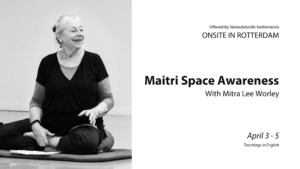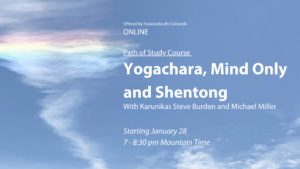In Buddhism, the sangha, the community of practitioners, is the last of the three jewels, after the Buddha and the dharma. Buddhists connect to these different expressions of awakened mind by taking refuge in each of them (almost) every day. All three are precious and necessary elements of the path.
I have no issues with taking refuge in the Buddha, the teacher, the human being who showed us the path to enlightenment that he found, nor with taking refuge in the dharma, the Buddha’s teachings. But the process is not always that straightforward when I try to connect to the sangha.
If I think of “sangha” as the beings that have preceded me on the path to awakening—buddhas, bodhisattvas, arhats, gurus—then it is simple. They are role models and sources of inspiration. But when I think of “sangha” as my flesh-and-bone actual everyday companions on the path, things can get messy. This is especially true of the ones that abide near me and are, hence, more difficult to idealize.
A non-Buddhist friend once asked me why I had conflicts with people in my meditation group, that is, my sangha. Aren’t you supposed to be beyond that? No, we are not. We are Buddhists, and we are still human. We are not immune to conflict. The difference is (or should be, anyway) that we have the intention of working with and through disagreements and differences. It can even be said that messiness is the fuel for our path.
Some peers might seem to be our friends, and others might seem to be our enemies. But we are all committed to working with our minds. Sangha members are works in progress, full of flaws. We are still prey to our emotions; we get our buttons pushed and push others’ buttons.
As I think about it, taking refuge in the sangha can amount to accepting that, in Ponlop Rinpoche’s words, “we are not always perfect, and our life includes blunders and burdens of various kinds.” Those challenges, however, are the basis for genuine relationships and a genuine path. Our sangha buddies serve as teachers, becoming mirrors of our habitual patterns. That is a great blessing, if we allow them and ourselves the space to manifest our good intentions and if we let humor color our interactions.
Contemplation
Taking refuge in the sangha is not always easy. But next time you run into conflict with one of your companions on the path, you can try the following:
- Take a deep breath before rushing to respond or “solve” the situation. Just appreciate a sense of space and coolness.
- Bring to mind Khenpo Tsültrim Gyamtso Rinpoche’s words: “Erring and erring, we walk the unerring path.”
- Remember, we are in this together, and together we can help each other out. We can try to go kind, especially when we would rather go awry.

is a writer, translator, psychotherapist, teacher and, mother from Mexico. She is now working on a bestiary in poetic prose. She has practiced meditation for over 24 years and has been a student of Ponlop Rinpoche’s since 2002.






